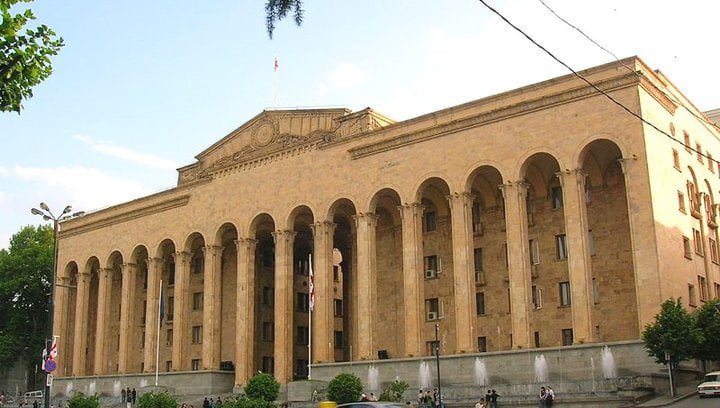
HRC Addresses “Alarming Trend” of Termination of Powers for Opposition MPs
“The unlawful premature termination of the powers for opposition leaders has taken the form of an alarming trend, the purpose of which may be to diminish of the Parliamentary oversight function of the Parliament,” said the non-governmental organization “Human Rights Center” (HRC) in a report published on March 16.
“The main initiators of the use of parliamentary oversight mechanisms are, in most cases, opposition deputies, and reducing their number in the legislative body will reduce the implementation of control functions to a minimum.”
The report reads: “The guilty verdicts in politically motivated criminal cases suggest that the parliamentary majority may be seeking to weaken the opposition and terminate the mandate of certain deputies in the Georgian Parliament.”
The document also notes that investigations against opposition leaders are often launched during important political events, such as elections, large opposition protests or opposition initiatives to set up a parliamentary investigative commission.
“Given the current situation, there is a reasonable doubt that in the future those MPs who may stand out in society due to their political activities will be threatened with the termination of their parliamentary powers, which clearly indicates an alarming trend,” the report says.
The report focuses on the criminal cases brought against current and former opposition MPs, including the former and current Chairs of the United National Movement, Nika Melia and Levan Khabeishvili, and the leaders of Lelo for Georgia, Mamuka Khazaradze and Badri Japaridze, which are alleged to be politically motivated.
Cases against the leaders of the “United National Movement”
The cases of Nika Melia
With regard to the termination of mandate of the former leader of the United National Movement, Nika Melia, which the majority of deputies claimed was based on a decision by the first instance court in the “Bank Kartu” case, the report stresses that the Georgian Parliament should not have treated the lower court’s ruling as a final and binding decision, but should have waited for rulings from higher authorities.
Another case against Nika Melia involved accusations of organizing and participating in group violence during the events of June 20-21, 2019, prompting the Prosecutor’s Office to request the parliament to revoke Melia’s parliamentary immunity. However, the organization believes that “the proposal submitted by the Prosecutor General was of a formal nature,” lacking proper presentation and justification of several important aspects confirming the need for pre-trial detention. The organization also notes that the European Court of Human Rights practice cited by the Prosecutor’s Office did not apply to Nikanor Melia’s specific case, given the factual circumstances and the standard of proof. Nonetheless, the Parliament lifted Melia’s immunity.
- 26/06/2019 – Parliament Lifts Immunity from UNM’s Nika Melia
The case of Levan Khabeishvili
The document also highlights the criminal case against the acting Chairman of the United National Movement, Levan Khabeishvili, who is accused of physically assaulting the former deputy chairman of the City Council, Irakli Zarkua. If Khabeishvili is found guilty, his powers as a deputy will be terminated, “continuing the trend of powers termination for opposition MPs.”
- 31/01/2020 – Three Tbilisi Sakrebulo Members from Ruling Party Charged over Violence against Opposition Member
- 12/01/2022 – In Quotes: Political Reactions to Khazaradze, Japaridze Ruling
The case of Badri Japaridze
Regarding the verdict in the “money laundering” case and the subsequent termination of political party Lelo’s MP Badri Japaridze’s powers, the report stresses that, the decision was again taken by the deputies on the basis of the first instance court’s ruling.
Also Read:
This post is also available in: ქართული Русский